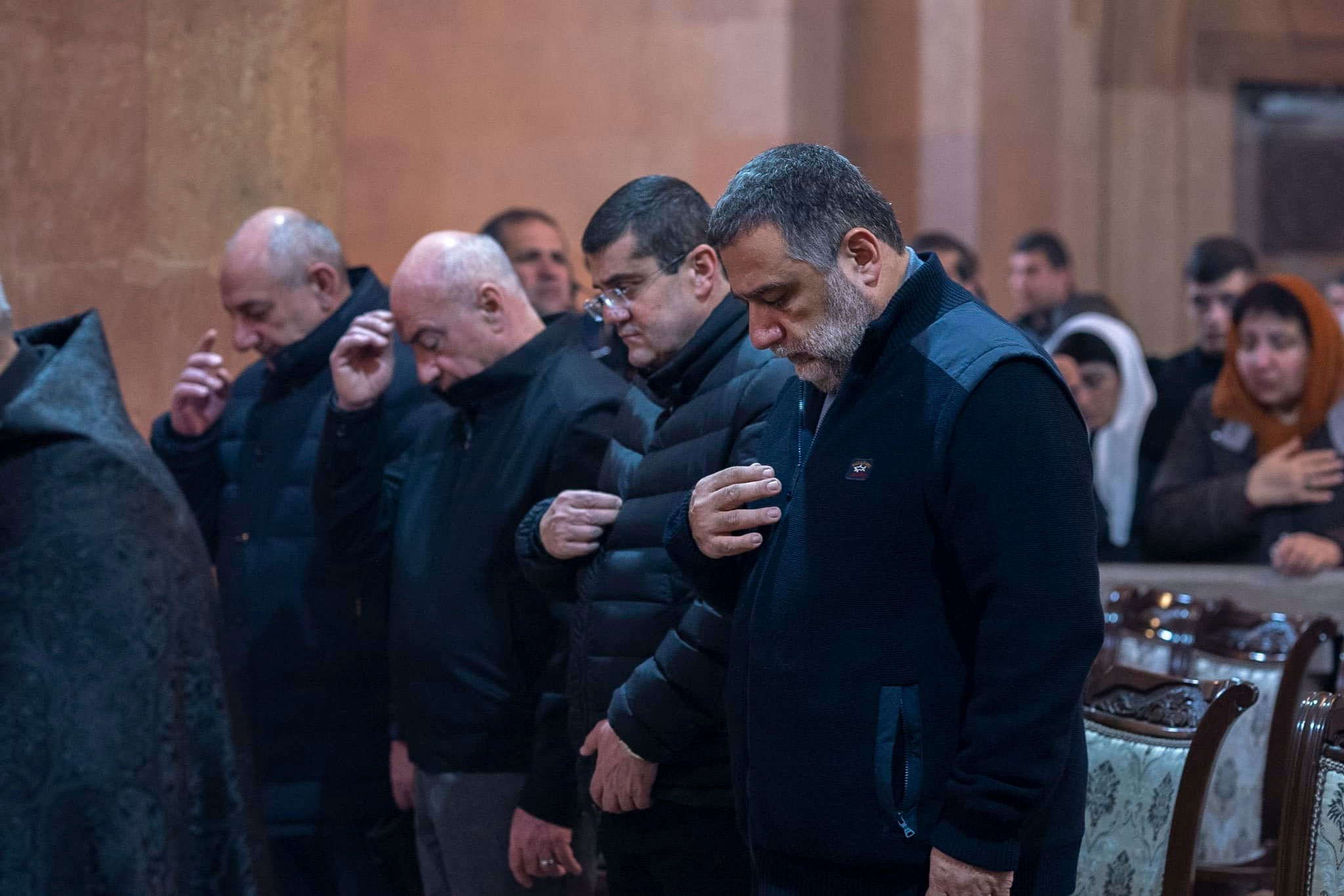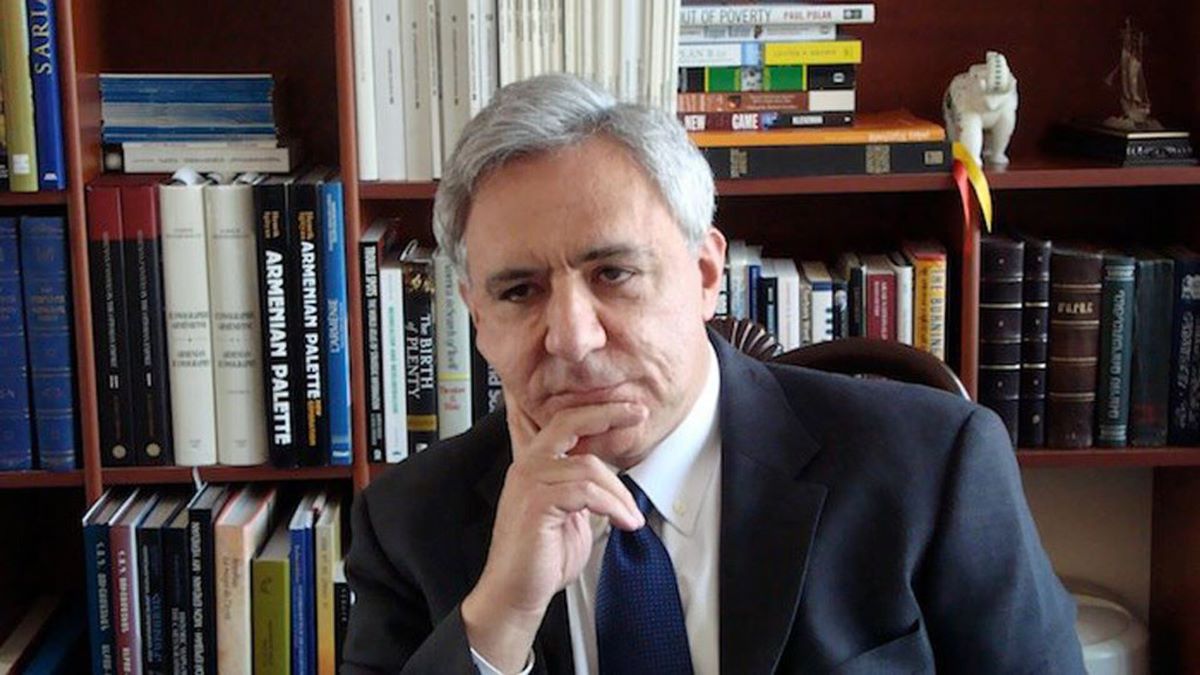Opinion: "West expects release of Armenian POWs before COP 29"
Armenian POWs and COP 29
Representatives of Armenian civil society are calling on participants of the UN Framework Convention on Climate Change and the upcoming COP 29 summit to present a set of demands to Azerbaijan. Chief among these is the release of 23 confirmed Armenian prisoners of war and civilians before the start of COP 29, which is set to take place in Baku in early November.
An appeal from more than 50 Armenian NGOs has been sent to the UN Climate Change Convention Secretariat, the Climate Action Network in Eastern Europe, the Caucasus, and Central Asia, CEE Bankwatch Network, the International Federation for Human Rights (FIDH), as well as embassies and international organizations operating in Armenia.
These NGOs assert that Baku is using Armenian prisoners as “bargaining chips” to gain concessions from Armenia. They cite, for example, Armenia’s agreement to hold COP 29 in Azerbaijan, which led to the return of 32 Armenian captives late last year.
Political analyst Stepan Grigoryan believes there is a possibility that some of the prisoners in Azerbaijani jails could be returned to Armenia before the UN climate summit.
“Azerbaijan is under considerable pressure. There’s a chance that before COP 29, Aliyev will either sign a peace treaty with Armenia or release the Armenian prisoners,” he suggests.
Armenian NGOs are also calling for Azerbaijan to release political prisoners
They remind that former leaders of the unrecognized Nagorno-Karabakh Republic are held in Azerbaijani prisons:
“They are charged or convicted for fabricated crimes with flagrant violations of their right to a fair trial. Reports from the UN Committee against Torture and Human Rights Watch document the cruel treatment and torture of Armenian detainees in Azerbaijan, along with severe breaches of international humanitarian and human rights law. Therefore, their release and return to Armenia is an urgent necessity.”
Armenian civil society representatives are urging parties of the UN Framework Convention on Climate Change and COP 29 participants to condemn Azerbaijan for:
- war crimes in Nagorno-Karabakh,
- violations of humanitarian law,
- ethnic cleansing of the indigenous Armenian population,
- destruction of Armenian historical and cultural heritage, and environmental crimes.
They also call on COP 29 participants to demand that Azerbaijan:
- “immediately release, before COP 29, the 23 confirmed Armenian prisoners of war and civilians,
- allow international organizations access to closed facilities to locate other detainees and conduct recovery operations in Nagorno-Karabakh to return the remains of the deceased to their families,
- and free prisoners of conscience and political detainees within Azerbaijan.”
Armenian human rights advocates have long claimed that Azerbaijan holds at least 80 more Armenians whose status remains unacknowledged by Azerbaijani authorities. An additional 200 individuals are considered missing, but international and Armenian search teams are barred from surveying areas to locate remains for repatriation and burial by relatives.
The NGO statement also addresses the topic of a peace agreement between Armenia and Azerbaijan, stating that in recent months, Baku has imposed new preconditions on Yerevan for signing a peace treaty.
Furthermore, Azerbaijan has rejected Armenia’s proposal to sign the document on already agreed-upon points:
“Simultaneously, it has pushed for the termination of the EU monitoring mission observing the Armenia-Azerbaijan border. This essentially confirms that Azerbaijan has no real intention of establishing peace, making the so-called ‘peaceful COP’ slogan a false pretense, and that COP 29 could be followed by renewed conflict in the region.”
Commentary
Political analyst Stepan Grigoryan believes that if Azerbaijani authorities want the summit to proceed as planned, they must either sign a peace treaty or release the Armenian prisoners:
“I don’t really believe in a peace agreement being signed, but the pressure is ongoing, and Aliyev is considering it.”
According to the analyst, if Aliyev does not agree to meet one of these two conditions, the European Union and the United States may boycott the summit:
“The EU and the US are saying, ‘If you want our high-level participation in COP 29, release the prisoners.’ Baku is also receiving such calls from the European Parliament.”
Before the Pashinyan-Aliyev meeting in Kazan, Grigoryan did not believe that Baku would take either of these steps. However, he says that the results of the negotiations showed that Armenia’s Prime Minister succeeded in “somewhat persuading” Azerbaijan’s president:
“Right after the Kazan meeting, Aliyev returned to Baku and signed a protocol regulating the work of border delimitation commissions. In doing so, he acknowledged that the process should proceed according to the 1991 Alma-Ata Declaration [which entails mutual recognition of administrative borders as they were at the collapse of the USSR]. This declaration is far from ideal but at least provides a framework for the borders.”
Stepan Grigoryan agrees with those who believe that Azerbaijan may break the treaty if it is signed without guarantors:
“But that doesn’t mean this path should be abandoned. The agreement must be signed, negotiations must be held. This way, Aliyev’s freedom of action is limited.”
Follow us – Twitter | Facebook | Instagram
Armenian POWs and COP 29




















